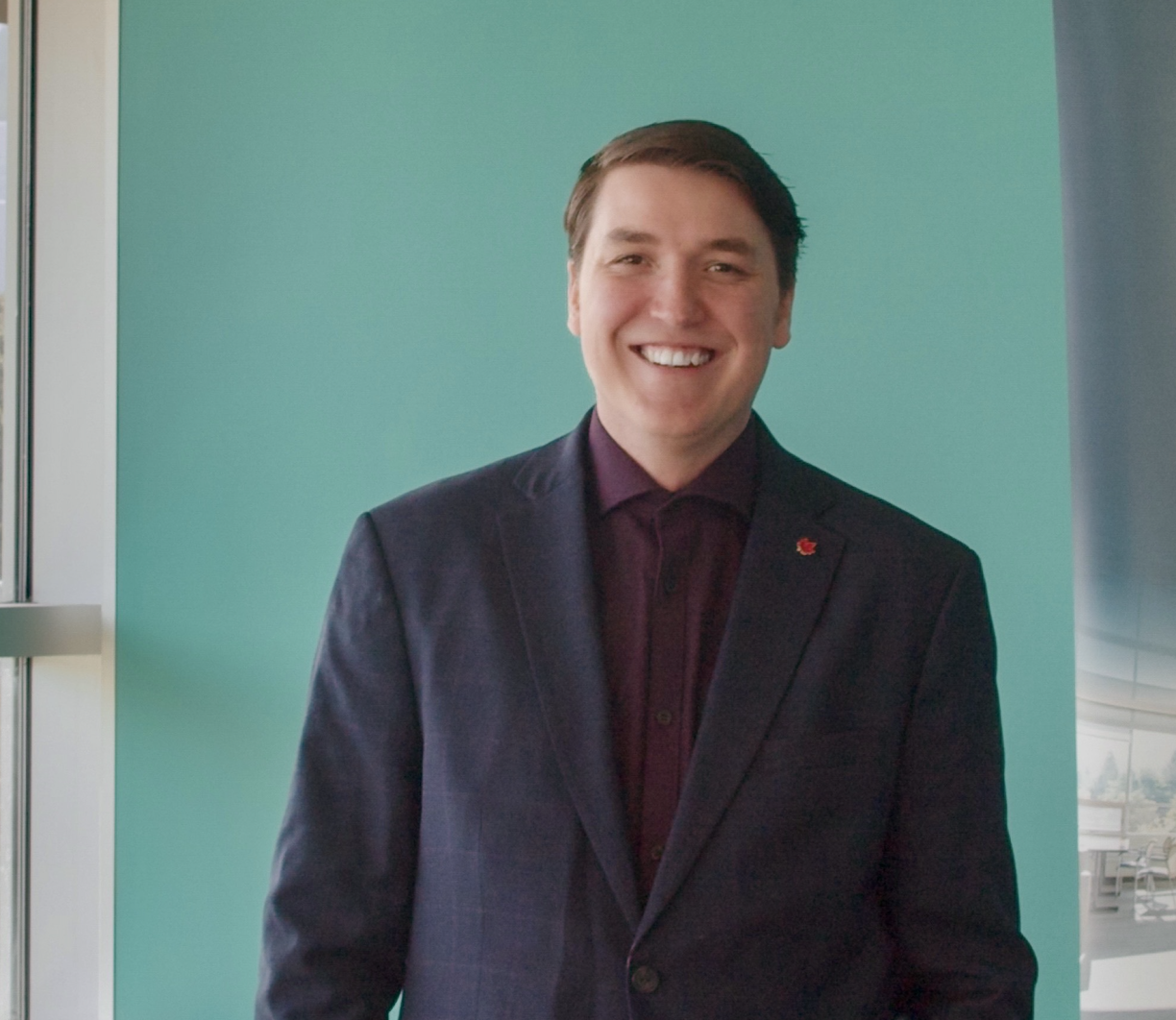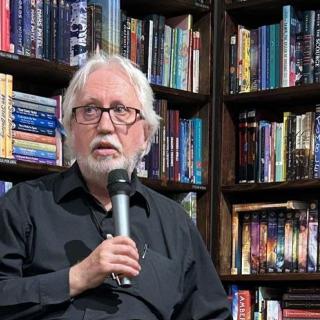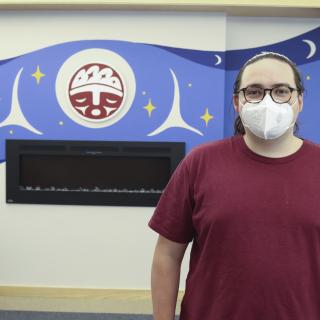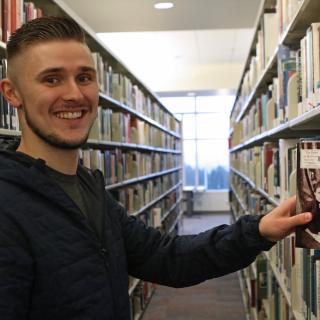Trevor Ballyntine graduated from VIU's Liberal Studies program and is currently on his way to becoming a lawyer.
When Trevor Ballyntine was growing up, graduating from high school seemed like a stretch – never mind university.
Now Trevor, who graduated from VIU’s Liberal Studies program last spring, is on his way to becoming a lawyer. He recently had the opportunity to meet Justice Russell Brown of the Supreme Court of Canada.
We caught up Trevor recently to learn more about what brought him to this stage of his post-secondary career and how VIU helped shaped his decision to pursue law.
Why did you choose VIU?
I only barely graduated from Parksville Alternate Secondary School – a year late and with an Adult Dogwood diploma. Thankfully, I had passionate and exceptional teachers who encouraged me not to see ceilings – a trend that has carried me now for close to two decades and through a diploma, then a degree and now into law school.
I received a scholarship to help me pursue my English requirements at VIU’s Parksville centre. Had it not been for the accessibility of those classes or the funds to afford them, I do not know where I would be right now. By the end of the two classes across two semesters, I knew I wanted to do a degree program at VIU and eventually settled on the Social Services diploma. I graduated from that diploma in 2015.
From there, I went on to work in the social service field in Parksville for a several years. At one point, I realized I had hit the ceiling of my career with my then-current education. Law had always been something in the back of my mind as a seemingly inaccessible dream.
I didn’t have a clue what Liberal Studies was when I reopened my BA application, but it was a program that allowed me to enter the major in the third year and complete it within two. The program seemed interesting and a fit for the end I was hoping for at the time. At every step of the way, I met diligent and qualified professors that encouraged my return and continued progress.I graduated last spring. It is hard to summarize my experience in the program, other than that it was too short. The two years I spent in the program are among the most profound, educational and cathartic periods of my entire life. Every day of the program is a day that calls into question, challenges and sometimes praises the most important and neglected parts of Canadian society.
How did VIU help you prepare for law school at Thompson Rivers University?
I cannot think of a better program to prepare a student both for the rigours of law school itself and to understand the more nuanced and important points of Canadian law. It is the experience of every law student at some point in their education to puzzle over the question, “What is a human right and how far does it extend?” Liberal Studies is tailored to answer such questions. From a technical standpoint, the transition from Liberal Studies to law was relatively easy. Liberal Studies breaks down the abstract political and philosophical concepts entangled in feudal literature, which still serve as the bedrock of our modern conceptions of property.
Can you tell us about the seminar you had with Justice Russell Brown of the Supreme Court of Canada?
At TRU, I am on the executive of the school’s chapter of the Runnymede Society. The society is made up of students, lawyers and scholars who share a commitment to constitutionalism, the rule of law, and fundamental freedoms, and to promote viewpoint diversity and debate on these principles.
Through this group, I participated in a private seminar with the Honourable Justice Brown from the Supreme Court of Canada. It is difficult to summarize the humbling experience of meeting a sitting judge in person. In all honesty, I left there perhaps more grateful for my experience in Liberal Studies than I had ever felt. The discussion centred around the differing underlying philosophies between Canada and the US that has informed the country’s political and legal makeup. During the meeting with Justice Brown, I got him to sign my copy of the Constitution of Canada.
What would you say to someone considering a similar-post secondary path?
Be skeptical when someone tells you about the “value” of a particular degree or field. At best this is only their experience, and they likely only got out an equal measure of the love they put into it.
For pre-law students, when you get to law school don’t just emphasize resume padding. Law school opens opportunities that most wouldn’t dare to dream of. You are educated on how power and privilege operate in our nation. It is your obligation as a student to use these opportunities wisely. This means, most of all, learn before you choose to speak. And don’t just use these opportunities to progress your career.
What’s next for you?
I am researching political theory master’s programs and would love to one day teach political philosophy and classical literature. Only time will tell where I go from here.
Anything else you would like to add?
When I was a child, I was speech delayed and had to undergo extensive therapy to be able to communicate at the level of my peers. In elementary school I was illiterate, and again, it was only through the diligent support of educators that I was able to progress. In those days, I missed class to get lunch at the soup kitchen. As a teen, and in the wake of my brother’s death, I felt the depths of hopelessness that swiftly relegated school to the lowest point of my contemplation. Looking back, the only reason I now write this is due to the turmoil of my life being counter balanced by the endless support of my community. I was very privileged and fortunate in that regard.




